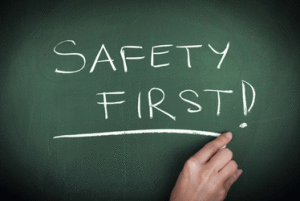A carbon monoxide detector is an extremely important device to have in your home. If you don't have one, this is the perfect time to buy one. We're going to look at the importance of this device and the tips to consider when buying one. If you already have one, we've also got you covered with maintenance tips.
Why Do You Need a Detector?
Carbon monoxide (CO) is a gas that you cannot smell, see or taste. It is a combustion byproduct, produced by common household appliances like furnaces, gas water heaters and fireplaces. Depending on the concentration level, exposure to carbon monoxide can cause headaches, nausea, fatigue, dizziness, convulsions, unconsciousness and even death.A carbon monoxide detector protects you by sounding an alarm after detecting a certain amount of the gas in the air. You can then respond appropriately by turning off appliances, ventilating the area or evacuating occupants.
What Types are Available?
There are three types of detectors available: hard-wired, plug-in and battery-operated. Hard-wired detectors are wired to your household's electrical circuit and are connected to other detectors. Plug-in detectors can be plugged into any electrical outlets. Battery-operated rely on batteries to operate and are not affected by power outages. For that reason, it is advisable to include a battery backup with plug-in and hard-wired detectors.
What Tips Should You Consider When Buying a Detector?
When shopping for a new detector, make sure you do the following:
Check the town or county regulations on alarms and placement.
Check whether the detector is UL listed. Only purchase one that is listed.
Check the detector's date of manufacture. This is to help you know the right time to replace it, which is after five years.
How Should You Maintain a Detector?
Perform the following maintenance tasks:
Check your unit's battery life. Replace old batteries.
Test your detectors to ensure they're working properly.
Replace detectors that are five years or older.
Make sure you include maintaining your carbon monoxide detector in your fall home maintenance checklist. For more information, contact Air Assurance. We serve the Broken Arrow area.
Our goal is to help educate our customers in the Tulsa and Broken Arrow, Oklahoma area about energy and home comfort issues (specific to HVAC systems). Credit/Copyright Attribution: “Aysezgicmeli/Shutterstock”


